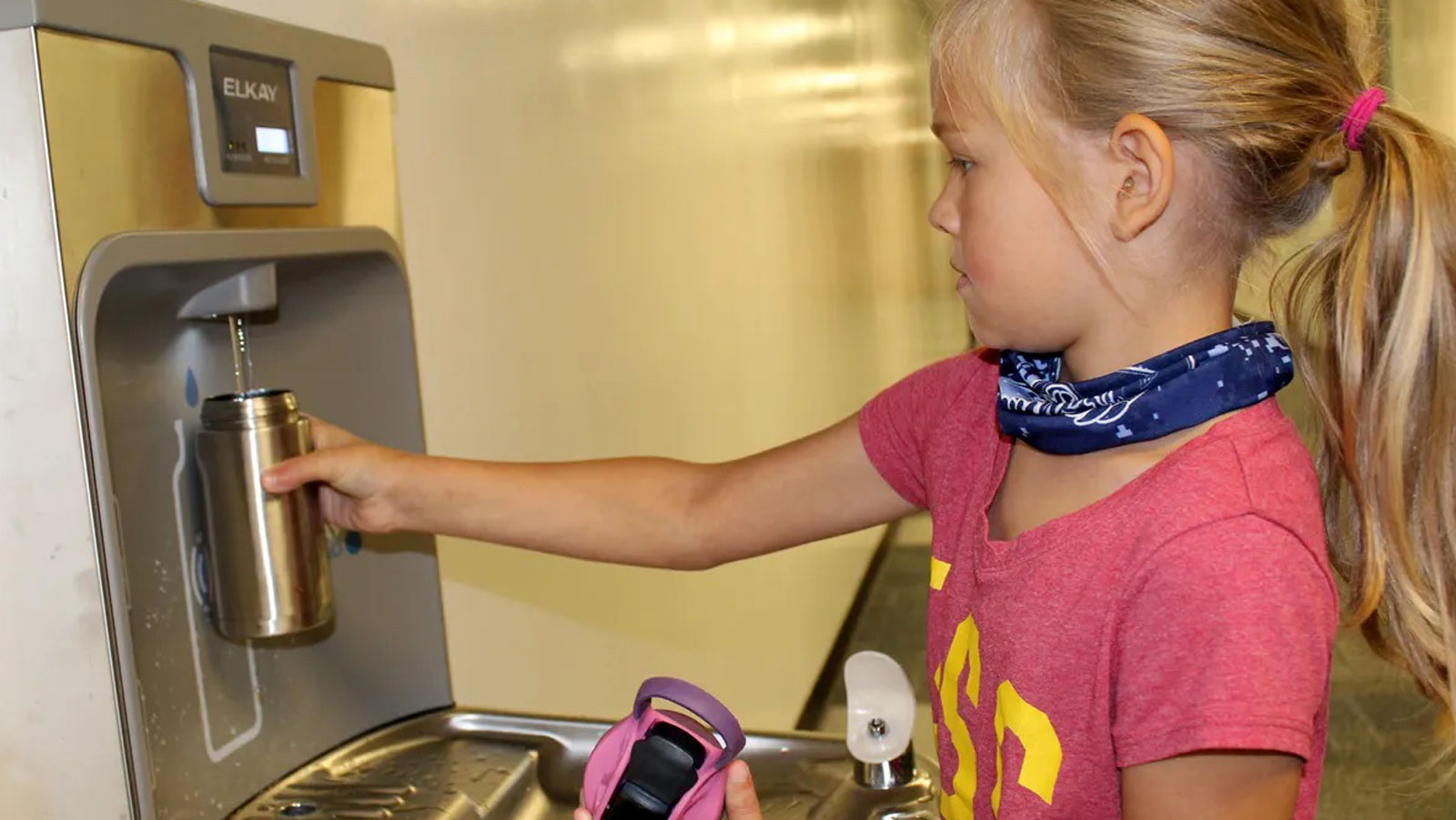
Testimony: Update the Keep Antibiotics Effective Act
Out testimony for The Keep Antibiotics Effective Act of 2019 to ensure that MDA enforces the law as intended by codifying definitions, requiring notification of effected farms, and requiring reporting on the use of medically important antibiotics on farms.
The Keep Antibiotics Effective Act of 2017 expanded on federal policy to stop the routine use of antibiotics of animals that are not sick and passed with strong bi-partisan support.
Unfortunately, the Maryland Department of Agriculture enacted regulations that undermine the intent of the law, despite concerns from legislators, health professionals, and advocates.
Antibiotic overuse on farms is causing our most life-saving medicines to become less effective. An estimated 160,000 Americans die every year from antibiotic-resistant bacteria, and the Centers for Disease Control warns that “much of the antibiotic use in animals is unnecessary and inappropriate and makes everyone less safe.”
In the U.S. two thirds of antibiotics important to human medicine are sold for use on animals. They are often fed in routine, low doses to animals that aren’t sick to prevent diseases that can be caused by poor diets and stressful, cramped or unsanitary living conditions. This routine use of low dose antibiotics on industrial farms facilitates the spread of antibiotic-resistant bacteria, which can travel off of farms and into the community.
Below is our testimony for The Keep Antibiotics Effective Act of 2019 to ensure that MDA enforces the law as intended by codifying definitions, requiring notification of effected farms, and requiring reporting on the use of medically important antibiotics on farms.
Antibiotics are a cornerstone of modern medicine. Before antibiotics, infections were the leading cause of death in the United States. The overuse of antibiotics on farms in not necessary and contributes to the growing threat of bacteria that are resistant to all antibiotics.
With approximately two thirds of antibiotic sales going towards use in animals, the pharmaceutical industry is padding their profits at the expense of public health. As a result, we bear $55 billion in costs from healthcare and missed work and upwards of 162,000 deaths every year in the United States.
It’s time to stop the routine use of human antibiotics on farms: the public health community and public agree. It’s good for public health and good for business. Maryland PIRG strongly support this bill, which is our top priority for 2019.
This bill addresses regulations enacted in January 2019 by the Maryland Department of Agriculture that undermine the intent of the 2017 law, which passed with broad bipartisan support. We must pass this bill to ensure proper implementation of the law to protect our lifesaving drugs.
Public Health Community Support
- The Who’s Who of public health groups have cautioned against using antibiotics in routine low doses on animals — including the World Health Organization, American Medical Association, American Public Health Association, the Infectious Disease Society of America, and American Academy of Family Physicians. A list of positions from the public health community is attached.
- According to the Centers for Disease Control and Prevention, “much of the antibiotic use in animals is unnecessary and inappropriate and makes everyone less safe.”
- A Maryland PIRG poll with Consumers Union has found that 9 out of 10 doctors are concerned about the industry practice of using antibiotics on animals for disease prevention.
Public Support
A Gonzales Poll, commissioned by NRDC around this law found that statewide, 68% or Marylanders polled favor state legislation to restrict the regular use of medically important antibiotics and reserve them for use on sick animals, including a majority of Democrats, Republicans, and Independent voters. These numbers were strong regionally too:
- 68% support each on Eastern Shore, Southern Maryland, DC Suburbs, and Baltimore Suburbs;
- 73% support in Baltimore City;
- 61% support in Western Maryland.
Maryland PIRG staff have knocked on tens of thousands of doors to educate the public about antibiotic resistance and collect of signatures to support our campaign to stop antibiotic overuse on animals raised for meat. This summer alone we knocked on 23,000 doors.
Good for Business
In 2016 Maryland’s own Perdue Farms became the first major U.S. chicken producer to successfully phase out the use of routine antibiotics in raising chickens. They achieved this goal through the use of animal husbandry techniques, vaccines, probiotics, and many other alternatives. If Perdue, which processes nearly 13 million chickens each week, can make this change, why can’t everyone?
Perdue’s action on antibiotics was not only the right thing to do for public health, it has also proven to be a smart business decision. Perdue Chairman Jim Perdue estimates that sales of chicken raised without antibiotics are growing by 15 to 20%, while sales of conventional chicken are growing by only 1 to 3%. Since, other producers have achieved similar success, and many have achieved a certificate of Certified Responsible Antibiotics Use from the United States Department of Agriculture – a standard which is even tougher than the bill being considered today.
In order to respond to consumer pressure and/or corporate responsibility, many local and chain restaurant owners have stopped serving meat raised with routine antibiotics. For example, McDonald’s, Subway, Wendy’s, Taco Bell, Panera Bread, Chipotle, and Starbucks have moved away from routine antibiotics or have committed to do so. McDonald’s, certainly a cost-conscious chain, hit their goal with chicken ahead of schedule, and recently made a commitment on antibiotics use in beef. A larger list of local and chain restaurants is attached.
According to the Environmental Integrity Project, more 55% of the chicken producers on Maryland’s Eastern Shore raised chicken form Perdue and Mountaire Farms. Perdue is already compliant with the bill, and much if not all of Mountaire Farms’ production is also compliant with this bill and certified by USDA as responsible antibiotics use.
The next 3 largest integrators are Tyson, Allen Harim, and Amick Farms. Tyson is completely compliant with this bill and much if not all of Allen Harim’s flock is in compliance. Amick Farms is the only producer we have not found data on.
The cost difference of meat raised in compliance with this law is expected to be pennies per pound. In 1999 the National Research Council estimated that if U.S. producers eliminated all non-therapeutic use of antibiotics in meat production, it would cost the average grocery shopper less than $10 annually. In today’s dollars, that would be $13.50 per year—a mere dollar per month per person.
The market is shifting, but not at the pace necessary to address this public health crisis. While significant evidence indicates that adopting a “responsible antibiotics policy” is good business and will help protect antibiotics for future generations, there are still some who resist change.
Without regulation, the voluntary landscape makes it easy for companies to confuse the public about their antibiotic use. Furthermore, the growing market demand for meat raised responsibly means that by passing this bill you would be setting up Maryland farmers to be in position to meet the demand, rather than the neighboring farmers who will be trying to play catch up too late.
These tremendous market shifts show that it is economically possible. It is time to stop the routine use of antibiotics on farm animals.
FAQ’s:
1. Didn’t we already pass this law? Why are we re-legislating?
In 2017 the Maryland General Assembly passed the Keep Antibiotics Effective Act with broad, bipartisan support in order to stop the routine use of antibiotics and use of antibiotics for prophylaxis when no risk is present.
Despite concerns from legislators, public health professionals, and advocates, the Maryland Department of Ag has enacted regulations for the law which do not ensure responsible use and undermined the intent of the law.
The draft regulations came out more than a year after the law was passed, after advocates filed a Public Information request to ascertain the nature of the hold-up. The Maryland Department of Agriculture released draft regulations in summer of 2018. The draft regulations immediately generated concerns among the public health community who felt that the definitions for “routine use” and “prophylaxis” would not ensure responsible use and undermined the intent of the law.
The Joint Committee on Administration, Executive, and Legislative Review put a hold on the draft regulations to allow a chance for improvement, but unfortunately MDA enacted them as is.
Isn’t this redundant considering the FDA guidelines? The FDA requirements are a step in the right direction but does not stop the routine use of antibiotics. The guidance stops the routine use for “growth promotion,” but allows for routine use for “disease prevention.” Allowing any routine use is a threat to public health and the future of antibiotics. You can read more about this in reports from NRDC and Maryland PIRG.
2. But the FDA rules are working, right?
While recent reports in decrease of antibiotics sales is certainly good news, we need to be doing much more to address this crisis. As the data confirm, sales for antibiotic use for animals has decreased but still FAR outpaces use in humans, with nearly 2/3 of human antibiotics being sold for use on animals.
3. Don’t we need to give antibiotics to animals to prevent food-borne diseases?
We fully support giving antibiotics to animals that are sick or to prevent an outbreak when disease is present. This is important for the health of the animals and safety of the meat. We do not support any routine use of antibiotics. Giving routine doses of antibiotics does not make meat safer. Denmark and the Netherlands have stopped this practice which has not led to food safety problems. For more information on meat and food-borne disease see resources from the CDC and Consumer Reports.
4. What about human use? Isn’t that a bigger part of the problem?
A tremendous amount of effort has gone to rein in the overuse of antibiotics used on humans. Hospitals have stewardship program and there is intense monitoring and data collection. Now we need to do more to address the use of antibiotics on animals. Nearly two thirds of antibiotics sold in the US are sold for use on animals. The routine low dose use, as often used on animals, is the usage most likely to breed resistance.
5. Can’t we just make new antibiotics?
Only two new classes of antibiotics have reached the market in the last 30 years. Finding new antibiotics is time intensive and expensive. The rise of resistance is far outpacing the rate of discovery.
CONCLUSION: If antibiotics stop working we could return to an era when a minor scrape or cut might be life threatening and surgery is virtually impossible. We can save antibiotics, but we must act now. It’s time to protect public health by stopping the routine use of human important antibiotics in animal production.
We respectfully request a favorable report on HB652.
[1] Prescription for Change: Antibiotics Use in Humans and Animals Amidst Growing Concerns of Doctors, Maryland PIRG and Consumers Union, October 23, 2014.
[2] NRDC Survey Results.
[3] Perdue Farms Antibiotics Position Statement.
[4] Fortune Magazine, Oct. 2016.
[5] USDA Certified Responsible Antibiotics Use details and certification list.
[6] McDonalds Antibiotics Position on Chicken statement
[7] McDonalds Antibiotics Position on Beef statement
[8] Table B page 11.
[9] National Research Council, The use of drugs in food animals: benefits and risks, National Academy Press, 1999.
[10] Weak Medicine: Why the FDA’s Guidelines are Inadequate to Curb Antibiotic Resistance and Protect Public Health, Maryland PIRG Foundation, Sept. 2014.
[11] FDA’s Efforts Fail to End Misuse of Livestock Antibiotics, NRDC
[12] Making the World Safe From Superbugs, Consumer Reports.
[13] Antibiotic resistance in foodborne germs is an ongoing threat, CDC
[14] Pew Charitable Trusts, “Antibiotics and Innovation.”
Topics
Authors
Emily Scarr
State Director, Maryland PIRG; Director, Stop Toxic PFAS Campaign, PIRG
Emily directs strategy, organizational development, research, communications and legislative advocacy for Maryland PIRG. Emily has helped win small donor public financing in Baltimore City, Baltimore County, Howard County, Montgomery County, and Prince George's County. She has played a key role in establishing new state laws to to protect public health by restricting the use of antibiotics on Maryland farms, require testing for lead in school drinking water and restrict the use of toxic flame retardant and PFAS chemicals. Emily also serves on the Executive Committees of the Maryland Fair Elections Coalition and the Maryland Campaign to Keep Antibiotics Working. Emily lives in Baltimore City with her husband, kids, and dog.
Find Out More

VR risks for kids and teens

The Threat of “Forever Chemicals”

Green schools guide

